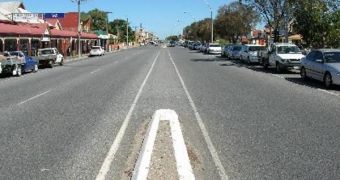South Korean scientists are currently in the process of developing a revolutionary new technique of recharging electric vehicles, without having to construct a large number of recharging stations along existing highways. Basically, they are trying to construct the recharging mechanisms directly into the streets, which is in a number of ways similar to technologies already employed in some brands of electric toothbrushes. Current plans, still in the experimental phase, call for strips of the new material to be added to the surface of the roads. They will be a few centimeter wide, and several hundred meters long, and will directly transfer energy to the vehicles.
The cars themselves would have to be outfitted with sensor-driven magnetic devices, Reuters reports, which means that they would not have to come into direct contact with the strips in order to receive energy. The road devices would be between 20 centimeters (8 inches) and 90 centimeters (35 inches) wide, and could exceed 200 to 300 meters (about 1,000 feet) in length. In theory, the system could provide vehicles with important amounts of electric energy, which the cars could then store in special battery packs aboard.
“If we place these strips on about 10 percent of roadways in a city, we could power electric vehicles,” the Korea Advanced Institute of Science and Technology Manager of the “online electric vehicle” plan, Cho Dong-ho, explained. On their campus in Daejeon, South of the capital of Seoul, experts at the university have already constructed an experimental strip, which has proven able to power up electric golf carts, but now they are working on versions that could power regular electric cars, as well as buses used for public transportation.
The basic principle the prototype system makes use of is called inductive charging, and relies on magnets and wiring under the electric vehicles picking up the current as they travel at a speed above the specially designed strips. The technology already exists in some brands of water-resistant toothbrushes, which recharge directly from a special station, without any visible contacts between it and the station.
Several automakers in South Korea have already announced that they will cooperate with the university in this strife, and authorities in Seoul have given the go-ahead for such a system to be tested in some of the capital's intersections. According to plans, the first strips will be placed on bus lanes, and also at traffic stop lights, so that the vehicles could recharge while stationary as well.

 14 DAY TRIAL //
14 DAY TRIAL //